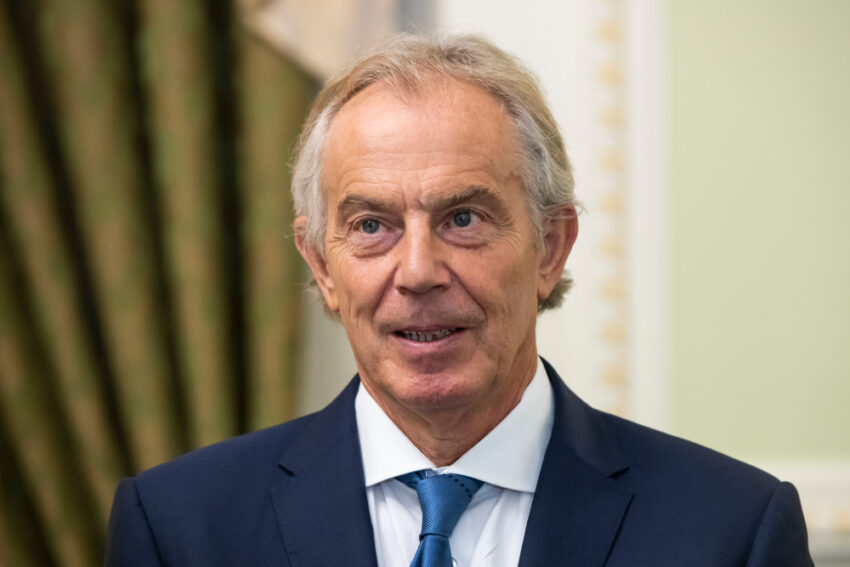Sir Tony Blair has urged Energy Secretary Ed Miliband to abandon his 2030 clean energy target and cut the green tariff as his think tank warned that current climate policies are increasing costs for households and businesses.
A new report from the Tony Blair Institute (TBI), personally endorsed by the former Prime Minister, claims the government's commitment to completely decarbonise the electricity grid by 2030 is “destroying industry” and “hurting homes.”
The intervention, which has sparked fury within the Department of Energy Security and Net Zero, highlights growing divisions within Labor over the pace and affordability of the party's green transition.
The report's authors, led by Ryan Wynne, said Labour's clean power agenda risks pushing voters towards “populists” such as Reform UK ahead of next year's regional elections, warning that the government's energy policies should be “recalibrated around affordability.”
“We are in a livelihoods crisis as well as a climate crisis – you can't just pick one and pretend the other doesn't exist,” Wen said.
“Right-wing populists are already exploiting this tension. Unless electricity is affordable, the politics of net zero will become toxic.”
Blair, who has made energy reform a personal focus through his institute, supported the report's call for “affordable, clean electricity” rather than the current approach, which he said had left the UK with a “low-carbon but high-cost economy”.
The TBI report argues that the green levy now accounts for 20% of the average electricity bill, up from just 8.5% in 2015, and the policy cost is now higher than the actual electricity cost for the average household – £334 versus £324.
It also warned that the cost of connecting Britain's new offshore wind farms to the grid would exceed the cost of the turbines, with the cost of the required pylons and substation infrastructure set at £112 billion.
The think tank concluded: “The trend in UK energy over recent decades has been to transform our electricity sector from cheap, high-carbon to expensive, low-carbon.”
Miliband, who is overseeing Labour's flagship Clean Power 2030 policy, reportedly reacted angrily to the publication, and instructed civil servants to issue a statement rejecting the findings.
This is the second high-profile clash between Blair and Miliband this year. In April, the former prime minister warned that existing net zero plans were “doomed to fail” due to unrealistic timelines and insufficient investment in grid capacity.
Tone Langgen, TBI's chief energy advisor, said the Clean Power 2030 plan was well-intentioned but was now “out of step with economic reality.”
“Launched in a low-interest environment, during the gas crisis, the scheme was right for its time. But circumstances have changed. The UK needs to prioritize affordable clean electricity to drive down bills and attract new industries.”
Miliband is already under pressure from energy leaders, who argue that renewable subsidies and network costs are driving up household bills.
Rachel Fletcher, director of policy and regulation at Octopus Energy, warned last week that green levies and grid upgrades could add almost £300 to the typical household electricity bill by 2030.
Meanwhile, the government is insisting that its reforms will ultimately lower costs and reduce dependence on fossil fuels.
A spokesperson for the Department of Energy Security and Net Zero said: “Our mission is focused on delivering persistently low bills and tackling the affordability crisis driven by fossil fuel dependence.
That's why we've ushered in a new golden age of nuclear energy to spur growth and good jobs and approved record levels of clean energy investment.”
Blair's intervention underlines the political dilemma facing Labor – balancing the need to meet net zero targets while addressing the living wage crisis.
With the Budget due next month and energy costs in Europe still at an all-time high, advisers have warned that Miliband's clean energy revolution could become a political liability if voters continue to associate green policy with higher bills.
As one senior Labor figure told Business Matters privately: “Tony is saying what many of us are thinking – the politics of net zero are changing rapidly, and affordability has to come first.”










